

These are the new street names that represent all racial groups, genders and political spectrums, including Afrikaner religious leaders and academics that played an important role in the country's liberation struggle.
According to the Executive Mayor, Cllr Kgosientso Ramokgopa, the street name changes were necessary to ensure racial harmony and cohesion in the city.
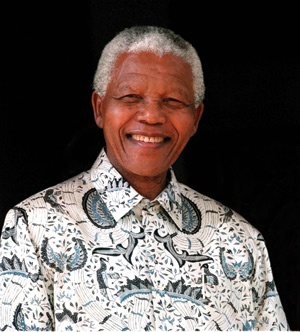 Nelson Mandela is one of the most famous political leaders in the world. He was born in Qunu, near Umtata in the Eastern Cape and is a qualified lawyer. He was the first democratically elected South African president, serving from 1994 to 1999. Before his presidency, Mandela was a militant anti-apartheid activist and the leader and co-founder of Umkhonto we Sizwe, the armed wing of the African National Congress (ANC). In 1962, he was arrested and convicted of sabotage and other charges. He was sentenced to life imprisonment, for treason, by the apartheid government but was released in February 1990 after serving 27 years.
Nelson Mandela is one of the most famous political leaders in the world. He was born in Qunu, near Umtata in the Eastern Cape and is a qualified lawyer. He was the first democratically elected South African president, serving from 1994 to 1999. Before his presidency, Mandela was a militant anti-apartheid activist and the leader and co-founder of Umkhonto we Sizwe, the armed wing of the African National Congress (ANC). In 1962, he was arrested and convicted of sabotage and other charges. He was sentenced to life imprisonment, for treason, by the apartheid government but was released in February 1990 after serving 27 years.
B.jpg) Johan Heyns was an influential Afrikaner Calvinist theologian and moderator of the general synod of the Nederduits Gereformeerde Kerk (NGK). He was assassinated at his home in Waterkloof Ridge in 1994. His death drew shock and outrage from all moderates in South Africa, including Nelson Mandela. Heyns was instrumental in the 1986 NGK decision to abandon its support for apartheid and brand it a sin. Although his murder was never officially solved, it is widely believed that it was directly related to his criticism of apartheid. Nelson Mandela paid homage to him as a martyr for his country and a soldier of peace.
Johan Heyns was an influential Afrikaner Calvinist theologian and moderator of the general synod of the Nederduits Gereformeerde Kerk (NGK). He was assassinated at his home in Waterkloof Ridge in 1994. His death drew shock and outrage from all moderates in South Africa, including Nelson Mandela. Heyns was instrumental in the 1986 NGK decision to abandon its support for apartheid and brand it a sin. Although his murder was never officially solved, it is widely believed that it was directly related to his criticism of apartheid. Nelson Mandela paid homage to him as a martyr for his country and a soldier of peace.
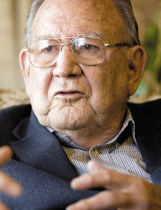 Nico Smith was an Afrikaner minister and a prominent opponent of apartheid. He was a professor of theology at the University of Stellenbosch, a member of the Afrikaner Broederbond (Afrikaner Brotherhood) organisation and a minister of the then apartheid-supporting Dutch Reformed Church (DRC). He had close contact with the young black people of Pretoria, Johannesburg and the Vaal Triangle. In time, they grew to trust him. Nico shocked many people when he, as a white man with an impeccable Afrikaner pedigree, a prestigious university job and a comfortable home, and his wife, Ellen, abandoned their upper-class lifestyle to live with the residents of Mamelodi from where they opposed apartheid.
Nico Smith was an Afrikaner minister and a prominent opponent of apartheid. He was a professor of theology at the University of Stellenbosch, a member of the Afrikaner Broederbond (Afrikaner Brotherhood) organisation and a minister of the then apartheid-supporting Dutch Reformed Church (DRC). He had close contact with the young black people of Pretoria, Johannesburg and the Vaal Triangle. In time, they grew to trust him. Nico shocked many people when he, as a white man with an impeccable Afrikaner pedigree, a prestigious university job and a comfortable home, and his wife, Ellen, abandoned their upper-class lifestyle to live with the residents of Mamelodi from where they opposed apartheid.
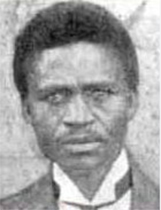 Sefako Mapogo Makgatho was born in Ga-Mphahlele, outside Polokwane. He was a politician, journalist, teacher and the second president of the ANC (1917-1924). He studied theology and education abroad and taught at the Kilnerton Training Institute until 1906 when he helped form one of the first teachers' unions, the Transvaal African Teachers' Association (TATA). In the seven years he was president of the ANC, he used the courts to challenge legislation that affected and undermined Africans in the urban areas, particularly laws relating to their freedom of movement. He later retired from politics to become a preacher of the local Methodist Church before starting an independent African church. He lived and died in Riverside, near Mamelodi, in May 1951 aged 90.
Sefako Mapogo Makgatho was born in Ga-Mphahlele, outside Polokwane. He was a politician, journalist, teacher and the second president of the ANC (1917-1924). He studied theology and education abroad and taught at the Kilnerton Training Institute until 1906 when he helped form one of the first teachers' unions, the Transvaal African Teachers' Association (TATA). In the seven years he was president of the ANC, he used the courts to challenge legislation that affected and undermined Africans in the urban areas, particularly laws relating to their freedom of movement. He later retired from politics to become a preacher of the local Methodist Church before starting an independent African church. He lived and died in Riverside, near Mamelodi, in May 1951 aged 90.
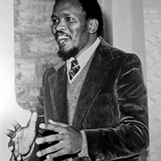 Steve Biko was an anti-apartheid activist in the 1960s and 1970s. As a student leader, he later founded the Black Consciousness Movement and the South African Students' Organisation (SASO). His quest for black unity led to his detention and subsequent death in police custody at the Pretoria Central Prison in 1977. Since then, he has been called a martyr of the anti-apartheid movement. While living, his writings and activism attempted to empower black people and he was famous for his slogan "black is beautiful". Despite friction between the African National Congress and Biko throughout the 1970s, the ANC has included Biko in the pantheon of struggle heroes.
Steve Biko was an anti-apartheid activist in the 1960s and 1970s. As a student leader, he later founded the Black Consciousness Movement and the South African Students' Organisation (SASO). His quest for black unity led to his detention and subsequent death in police custody at the Pretoria Central Prison in 1977. Since then, he has been called a martyr of the anti-apartheid movement. While living, his writings and activism attempted to empower black people and he was famous for his slogan "black is beautiful". Despite friction between the African National Congress and Biko throughout the 1970s, the ANC has included Biko in the pantheon of struggle heroes.
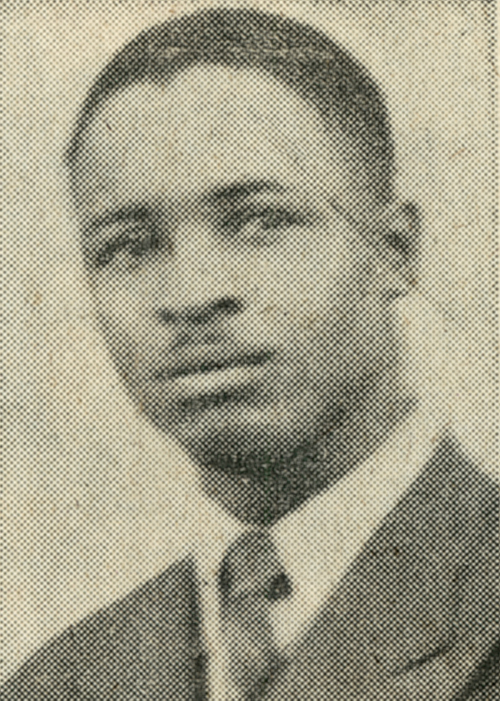 Born in Ga-Sekhukhune in Phokoane, Limpopo, Elias Motsoaledi joined the ANC in 1948, becoming a member of the Transvaal executive. In June of the same year he was elected as the branch secretary. He was a member of the South African Communist Party. He played a central role in many campaigns, including the Defiance Campaign of 1952, the year in which he was first banned. Detained during the 1960 State of Emergency and again in 1963 under the notorious 90-day Detention Law, Motsoaledi was sentenced to life imprisonment at the Rivonia Trial. He joined Umkhonto we Sizwe in 1962 and, in 1991, was elected a member of the ANC's National Executive Committee.
Born in Ga-Sekhukhune in Phokoane, Limpopo, Elias Motsoaledi joined the ANC in 1948, becoming a member of the Transvaal executive. In June of the same year he was elected as the branch secretary. He was a member of the South African Communist Party. He played a central role in many campaigns, including the Defiance Campaign of 1952, the year in which he was first banned. Detained during the 1960 State of Emergency and again in 1963 under the notorious 90-day Detention Law, Motsoaledi was sentenced to life imprisonment at the Rivonia Trial. He joined Umkhonto we Sizwe in 1962 and, in 1991, was elected a member of the ANC's National Executive Committee.
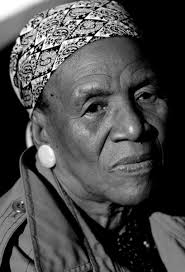 Francis "MaBaard" Baard was, during the 1952 Defiance Campaign, an organiser of the ANC Women's League. She played a leading role in the women's march against passes in 1956 and was actively involved in the drafting of the Freedom Charter in 1955. In 1956, she was a defendant in the Treason Trial and became a member of the executive committee of the South African Congress of Trade Unions (SACTU). She was detained in 1960 and again in 1963 and held for 12 months in solitary confinement before being sentenced to five years imprisonment in 1964 in terms of the Suppression of Communism Act. After her release in 1969, she was banned to Mabopane.
Francis "MaBaard" Baard was, during the 1952 Defiance Campaign, an organiser of the ANC Women's League. She played a leading role in the women's march against passes in 1956 and was actively involved in the drafting of the Freedom Charter in 1955. In 1956, she was a defendant in the Treason Trial and became a member of the executive committee of the South African Congress of Trade Unions (SACTU). She was detained in 1960 and again in 1963 and held for 12 months in solitary confinement before being sentenced to five years imprisonment in 1964 in terms of the Suppression of Communism Act. After her release in 1969, she was banned to Mabopane.
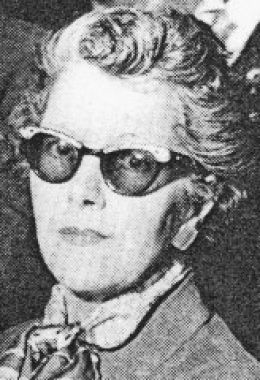 Helen Joseph (née Fennell) was a South African anti-apartheid activist. She was born in England. For 40 years, Helen was an inspiration and a symbol of defiance, integrity and courage. She was a founding member of the Congress of Democrats and one of the leaders who read out clauses of the Freedom Charter at the Congress of the People in Kliptown in 1955. Appalled by the plight of black women, she was pivotal in the formation of the Federation of South African Women. In 1956, with the organisation's leadership, she spearheaded a march of 20 000 women to the Union Buildings in protest against the pass laws. She was the first person to be placed under house arrest. She endured and survived threats, bullets shot through her bedroom window late at night and even a bomb wired to her front gate. Her last banning order was lifted when she was in her 80th year.
Helen Joseph (née Fennell) was a South African anti-apartheid activist. She was born in England. For 40 years, Helen was an inspiration and a symbol of defiance, integrity and courage. She was a founding member of the Congress of Democrats and one of the leaders who read out clauses of the Freedom Charter at the Congress of the People in Kliptown in 1955. Appalled by the plight of black women, she was pivotal in the formation of the Federation of South African Women. In 1956, with the organisation's leadership, she spearheaded a march of 20 000 women to the Union Buildings in protest against the pass laws. She was the first person to be placed under house arrest. She endured and survived threats, bullets shot through her bedroom window late at night and even a bomb wired to her front gate. Her last banning order was lifted when she was in her 80th year.
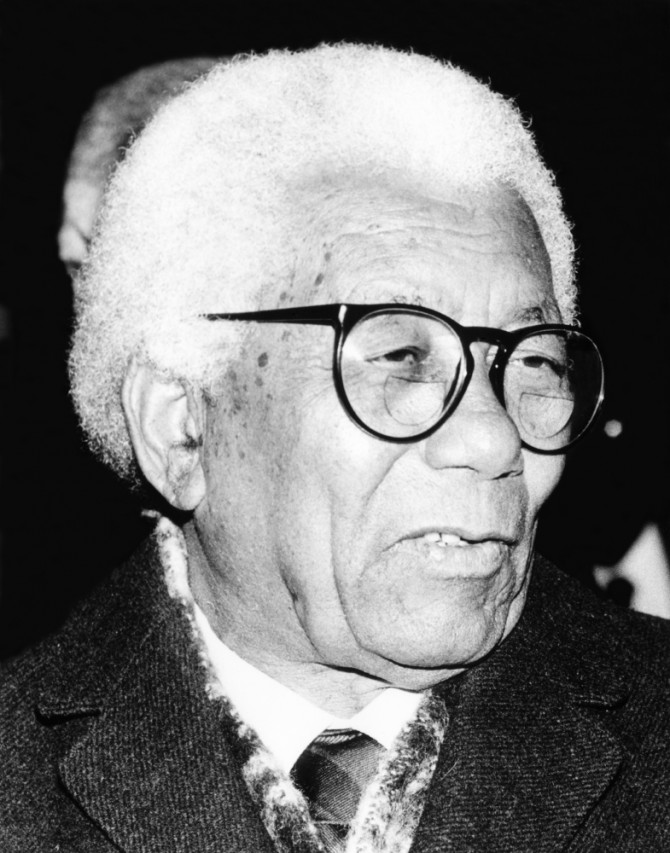 Walter Sisulu joined the ANC in 1940. In 1943, he, Nelson Mandela and Oliver Tambo, joined the ANC Youth League and he later became treasurer of the ANC Youth League. Sisulu became secretary-general of the ANC in 1949, displacing the more passive older leadership – he held that post until 1954. Sisulu was a brilliant political networker and had a prominent planning role in the militant Umkhonto we Sizwe. In October 1963, he was charged in the Rivonia Trial and on 12 June 1964, sentenced to life imprisonment for planning acts of sabotage. The following day Sisulu and other convicted Rivonia trialists were sent to Robben Island. He was released in 1989 after serving 26 years in prison. He was elected ANC deputy president in July 1991, after its unbanning the year before. He remained in the position until after South Africa's first democratic election in 1994.
Walter Sisulu joined the ANC in 1940. In 1943, he, Nelson Mandela and Oliver Tambo, joined the ANC Youth League and he later became treasurer of the ANC Youth League. Sisulu became secretary-general of the ANC in 1949, displacing the more passive older leadership – he held that post until 1954. Sisulu was a brilliant political networker and had a prominent planning role in the militant Umkhonto we Sizwe. In October 1963, he was charged in the Rivonia Trial and on 12 June 1964, sentenced to life imprisonment for planning acts of sabotage. The following day Sisulu and other convicted Rivonia trialists were sent to Robben Island. He was released in 1989 after serving 26 years in prison. He was elected ANC deputy president in July 1991, after its unbanning the year before. He remained in the position until after South Africa's first democratic election in 1994.
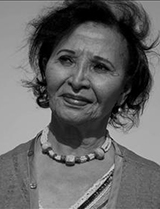 Sophie Williams-de Bruyn was 18 in 1956 when she, Lilian Ngoyi, Helen Joseph and Rahima Moosa led more than 20 000 women in a march to the Union Buildings. She is the only surviving leader of the historical event. She was also a volunteer in the 1955 Freedom Charter Campaign and had been a unionist since age 15 after poverty had forced her to leave school and work in a factory. She was a founding member of the South African Congress of Trade Union, the predecessor of the Congress of South African Trade Union.
Sophie Williams-de Bruyn was 18 in 1956 when she, Lilian Ngoyi, Helen Joseph and Rahima Moosa led more than 20 000 women in a march to the Union Buildings. She is the only surviving leader of the historical event. She was also a volunteer in the 1955 Freedom Charter Campaign and had been a unionist since age 15 after poverty had forced her to leave school and work in a factory. She was a founding member of the South African Congress of Trade Union, the predecessor of the Congress of South African Trade Union.
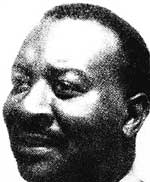 Dr William Frederick Nkomo was a medical doctor, educationist and community leader who tried to bring different races closer together. Until his death, he served as the Trustee of the Bantu Welfare Trust, which aimed to improve the lot of urban Africans and promote cooperation between black and white South Africans. In January 1972, a few months before his death on 26 March of the same year, he was elected president of the South African Institute of Race Relations.
Dr William Frederick Nkomo was a medical doctor, educationist and community leader who tried to bring different races closer together. Until his death, he served as the Trustee of the Bantu Welfare Trust, which aimed to improve the lot of urban Africans and promote cooperation between black and white South Africans. In January 1972, a few months before his death on 26 March of the same year, he was elected president of the South African Institute of Race Relations.
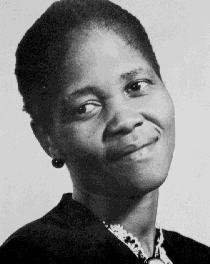 Lilian Masediba Ngoyi was born in Pretoria. She was an anti-apartheid activist, treason trialist and president of the ANC Women's League. When the Federation of South African Women (FEDSAW) was formed in 1954, she became one of its national vice-presidents. On 9 August 1956, she led the women's anti-pass march to the Union Buildings and personally knocked on Prime Minister Strijdom's door to hand over the petitions. In December 1956, Ngoyi was arrested for high treason along with 156 other leading figures. She stood trial until 1961 as one of the accused in the four-year long Treason Trial. She was banned from 1962 to 1972 and again in 1975. During the time of her banning, Ngoyi's great energies were totally suppressed and she struggled to earn a decent living. She subsequently suffered heart trouble and died in March 1980 aged 68.
Lilian Masediba Ngoyi was born in Pretoria. She was an anti-apartheid activist, treason trialist and president of the ANC Women's League. When the Federation of South African Women (FEDSAW) was formed in 1954, she became one of its national vice-presidents. On 9 August 1956, she led the women's anti-pass march to the Union Buildings and personally knocked on Prime Minister Strijdom's door to hand over the petitions. In December 1956, Ngoyi was arrested for high treason along with 156 other leading figures. She stood trial until 1961 as one of the accused in the four-year long Treason Trial. She was banned from 1962 to 1972 and again in 1975. During the time of her banning, Ngoyi's great energies were totally suppressed and she struggled to earn a decent living. She subsequently suffered heart trouble and died in March 1980 aged 68.
Thabo Sehume was a Black Consciousness Movement (BCM) and Azapo stalwart, a community worker and leader, a shrewd trade unionist and, above all, a revolutionary intellectual. He was banned, put under house arrest and detained without trial countless times. He dedicated his time to working with the municipal workers union, general mobilisation work and the establishment of an advice centre for Tshwane, particularly the community of Atteridgeville.
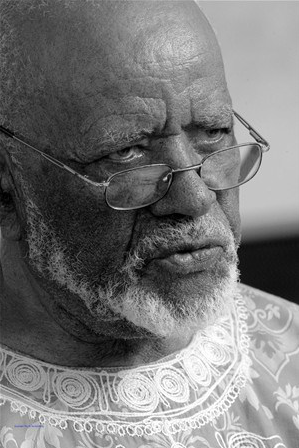 Professor Es'kia Mphahlele was a writer, academic, artist and activist. His first book of short stories, Man Must Live, was published in 1947. He was banned from teaching by the apartheid government in 1951. Mphahlele supported himself and his family through a series of clerical jobs before leaving South Africa to teach in Botswana, Zambia, Nigeria and later France and the United States of America. Mphahlele returned to South Africa in 1977 and joined the University of the Witwatersrand. During the 1950s, Mphahlele became increasingly politicised. He joined the African National Congress in 1955. Mphahlele was the illustrious author of 2 autobiographies, more than 30 short stories, 2 verse plays and a fair number of poems. On the evening of 27 October 2008, at the ripe age of 88, he passed away.
Professor Es'kia Mphahlele was a writer, academic, artist and activist. His first book of short stories, Man Must Live, was published in 1947. He was banned from teaching by the apartheid government in 1951. Mphahlele supported himself and his family through a series of clerical jobs before leaving South Africa to teach in Botswana, Zambia, Nigeria and later France and the United States of America. Mphahlele returned to South Africa in 1977 and joined the University of the Witwatersrand. During the 1950s, Mphahlele became increasingly politicised. He joined the African National Congress in 1955. Mphahlele was the illustrious author of 2 autobiographies, more than 30 short stories, 2 verse plays and a fair number of poems. On the evening of 27 October 2008, at the ripe age of 88, he passed away.
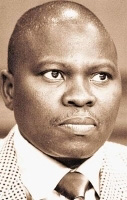 January Boy Masilela is the former secretary of defence and also served as the deputy secretary-general of the ANC. He left the country in 1975 for Zambia where he joined the Umkhonto we Sizwe (MK) and later trained in Libya, Russia and Cuba. He served as an MK regional commissar in Angola through most of the 1980s. During this time, he was also a member of the Central Committee of the South African Communist Party. On his return from exile, he served in the leadership of the ANC in the former Eastern Transvaal region and was a member of the provincial legislature (MPL) and an MEC in Mpumalanga. He was killed in an apparent car accident near Bronkhorstspruit when he allegedly lost control of his luxury vehicle.
January Boy Masilela is the former secretary of defence and also served as the deputy secretary-general of the ANC. He left the country in 1975 for Zambia where he joined the Umkhonto we Sizwe (MK) and later trained in Libya, Russia and Cuba. He served as an MK regional commissar in Angola through most of the 1980s. During this time, he was also a member of the Central Committee of the South African Communist Party. On his return from exile, he served in the leadership of the ANC in the former Eastern Transvaal region and was a member of the provincial legislature (MPL) and an MEC in Mpumalanga. He was killed in an apparent car accident near Bronkhorstspruit when he allegedly lost control of his luxury vehicle.
Nana Sita, affectionately known as Nanabhai, was born in Matwadi, Gujarat in India and came to South Africa in 1913 to live in Pretoria. He was the secretary of the Pretoria branch of the Transvaal Indian Congress and was involved in the Indian Passive Resistance Movement. He was also the president of the Transvaal Indian Congress and a member of the executive of the Transvaal Passive Resistance Council. During the Defiance Campaign in 1952, he led a batch of resisters which included Walter Sisulu. He was detained during the 1960 State of Emergency, banned and imprisoned for defying the Group Areas Act.
Peter Magano was a member of the ANC and the Pretoria Regional Action Committee which was established in early 1955. He became one of the first volunteers to join Umkhonto we Sizwe and later spent 17 years on Robben Island. He later became the special advisor on traditional affairs for the then North West Premier, Popo Molefe. He died at the age of 75 in 2002 after a car accident. Former president Mandela spoke at his funeral in Ga-Rankuwa.
Molefe Makinta was an ANC activist who later became the special advisor on traditional affairs to the then North West Premier, Popo Molefe. Due to police harassment, he moved to Brits where he was arrested and charged with sabotage and furthering the aims of the ANC. Consequently he was sentenced to 12 years imprisonment which he served on Robben Island from 1964 to 1976. He was released just before the historic 1976 Soweto Uprising and subsequently hunted down by the security branch. He then went underground. He was instrumental in the formation of the UDF in 1983. He served in various positions in the ANC between 1995 and 2000. He played a leadership role in establishing an authentic Umkhonto we Sizwe Military Veterans Association and was its provincial treasurer until his death on 16 July 2004.
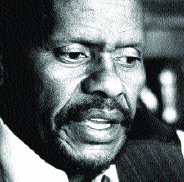 Jafta Kgalabi Masemola, "The Tiger of Azania" – also popularly known as "Bra Jeff" by many others, was an Atteridgeville teacher and Pan Africanist Congress of Azania (PAC) anti-apartheid activist. He is regarded as the longest serving political prisoner in South Africa after serving 28 years for conspiracy to commit sabotage. Prison authorities regarded him as an instigator among the prisoners and subjected him to solitary confinement for much of his time on Robben Island. Jafta Masemola rejected President PW Botha's offer to release him on condition that he denounce the armed struggle. He steadfastly refused to engage in any negotiations.
Jafta Kgalabi Masemola, "The Tiger of Azania" – also popularly known as "Bra Jeff" by many others, was an Atteridgeville teacher and Pan Africanist Congress of Azania (PAC) anti-apartheid activist. He is regarded as the longest serving political prisoner in South Africa after serving 28 years for conspiracy to commit sabotage. Prison authorities regarded him as an instigator among the prisoners and subjected him to solitary confinement for much of his time on Robben Island. Jafta Masemola rejected President PW Botha's offer to release him on condition that he denounce the armed struggle. He steadfastly refused to engage in any negotiations.
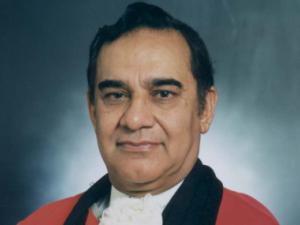 Justice Ismail Mohammed was the first chief justice appointed by post-apartheid South Africa. He served as the Chief Justice of South Africa and the Supreme Court of Namibia and co-authored the constitution of Namibia. He was refused admission to the Pretoria bar association as it was reserved for white lawyers, but he was able to join the bar in Johannesburg. However, because of the Group Areas Act, he was banned from getting an office of his own and was forced to practice out of his colleagues' offices while they were away. In 1974, he became the first non-white in South African history to take silk and later SA's first non-white judge of the Supreme Court of South Africa. Shortly after leaving the bench, Mohammed died of pancreatic cancer in Johannesburg on 17 June 2000.
Justice Ismail Mohammed was the first chief justice appointed by post-apartheid South Africa. He served as the Chief Justice of South Africa and the Supreme Court of Namibia and co-authored the constitution of Namibia. He was refused admission to the Pretoria bar association as it was reserved for white lawyers, but he was able to join the bar in Johannesburg. However, because of the Group Areas Act, he was banned from getting an office of his own and was forced to practice out of his colleagues' offices while they were away. In 1974, he became the first non-white in South African history to take silk and later SA's first non-white judge of the Supreme Court of South Africa. Shortly after leaving the bench, Mohammed died of pancreatic cancer in Johannesburg on 17 June 2000.
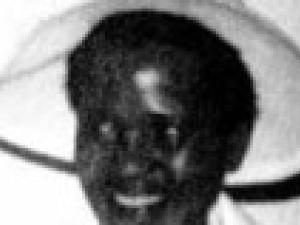 Florence Barbara Ribeiro and her husband, Dr Fabian Ribeiro, were very generous people. The couple's philanthropic actions included helping young people who were in exile through donations, providing them with contacts as well as sponsoring several young people to ensure they completed their education. The couple’s political activism began in the 1960s through their support of Florence’s sister, Veronica, who was married to Robert Sobukwe. By the late 1970s, Florence and Fabian were actively documenting and publicising the brutality of the security police towards child activists by videotaping their injuries. They also provided shelter and support to young activists. On 1 December 1986, they were gunned down in their courtyard and in 1997 the Truth and Reconciliation Commission (TRC) found that they had been assassinated by agents of the state.
Florence Barbara Ribeiro and her husband, Dr Fabian Ribeiro, were very generous people. The couple's philanthropic actions included helping young people who were in exile through donations, providing them with contacts as well as sponsoring several young people to ensure they completed their education. The couple’s political activism began in the 1960s through their support of Florence’s sister, Veronica, who was married to Robert Sobukwe. By the late 1970s, Florence and Fabian were actively documenting and publicising the brutality of the security police towards child activists by videotaping their injuries. They also provided shelter and support to young activists. On 1 December 1986, they were gunned down in their courtyard and in 1997 the Truth and Reconciliation Commission (TRC) found that they had been assassinated by agents of the state.
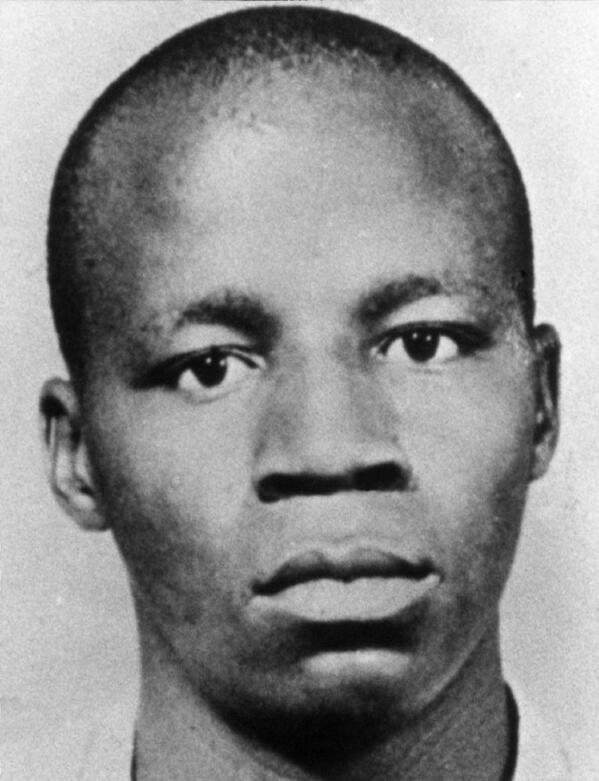 Solomon Kalushi Mahlangu was an ANC activist from Mamelodi who became an Umkhonto we Sizwe (MK) cadre. In 1977, he was wrongfully accused by the apartheid government on charges of murder and terrorism. He pleaded not guilty to all charges, and even though the judge accepted that Mahlangu did not commit the killings, he was charged with sharing the common purpose of the group and sentenced to death. Despite numerous appeals and extensive protests abroad, his sentence was upheld and he was executed by hanging at the Pretoria Central Prison on 6 April 1979.
Solomon Kalushi Mahlangu was an ANC activist from Mamelodi who became an Umkhonto we Sizwe (MK) cadre. In 1977, he was wrongfully accused by the apartheid government on charges of murder and terrorism. He pleaded not guilty to all charges, and even though the judge accepted that Mahlangu did not commit the killings, he was charged with sharing the common purpose of the group and sentenced to death. Despite numerous appeals and extensive protests abroad, his sentence was upheld and he was executed by hanging at the Pretoria Central Prison on 6 April 1979.
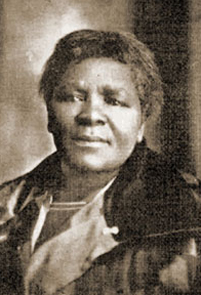 Charlotte Makgomo Maxeke (née Mannya) was born at Ga-Ramokgopa in Limpopo. She was a religious leader and political activist who founded the Wilberforce Institute with her husband Marshall Maxeke. She became active in the African Methodist Episcopal Church, which later elected her president of the Women's Missionary Society. By 1919, she was active in the anti-pass law demonstrations which led her to found the Bantu Women's League which later became part of the African National Congress Women's League. She obtained a BSc degree from the Wilberforce University in Wilberforce, Ohio USA in 1905. Maxeke's name has been given to the former "Johannesburg General Hospital" which is now known as the "Charlotte Maxeke Johannesburg Academic Hospital".
Charlotte Makgomo Maxeke (née Mannya) was born at Ga-Ramokgopa in Limpopo. She was a religious leader and political activist who founded the Wilberforce Institute with her husband Marshall Maxeke. She became active in the African Methodist Episcopal Church, which later elected her president of the Women's Missionary Society. By 1919, she was active in the anti-pass law demonstrations which led her to found the Bantu Women's League which later became part of the African National Congress Women's League. She obtained a BSc degree from the Wilberforce University in Wilberforce, Ohio USA in 1905. Maxeke's name has been given to the former "Johannesburg General Hospital" which is now known as the "Charlotte Maxeke Johannesburg Academic Hospital".
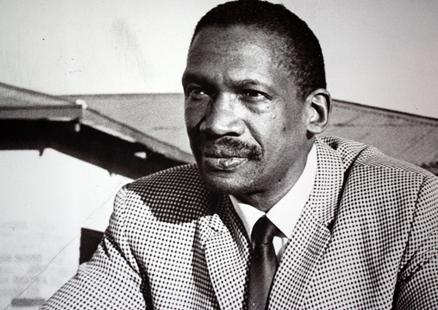
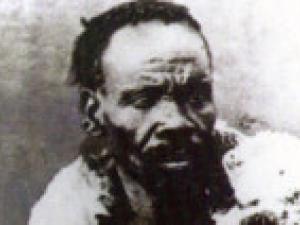 Kgosi Sekwati Mampuru was a local chief during the 19th century and his kraal was on the banks of the Apies River. He was a revolutionary figure who fiercely resisted colonial rule and was subsequently hanged by the colonial government in November 1883.
Kgosi Sekwati Mampuru was a local chief during the 19th century and his kraal was on the banks of the Apies River. He was a revolutionary figure who fiercely resisted colonial rule and was subsequently hanged by the colonial government in November 1883.
Johannes Lebone Slo Ramokhoase was the headmaster of Mamelodi High School and became the first black mayor of Pretoria in 1995. He was instrumental in fusing the old City Council of Pretoria with the local municipalities of Mamelodi, Atteridgeville and other surrounding areas. He was the longest serving chairman of the South African Democratic Teachers Union.
Jan Shoba was a member of the Azanian People's Liberation Army's (Apla) high command and was jailed on Robben Island. On the island, the PAC collapsed its army structures and operated politically and socially. He served in the leadership structures and was a deeply committed and efficient operator of the PAC activities, including coordinating the news analysis project. He was released in 1990 and became the personal bodyguard of former PAC President, Mlamli Makwetu. In 1992, he was assassinated outside his yard in Atteridgeville and his killers have never been found.
Johannes Maisha Stanza Bopape was an ANC activist and civic leader. He was elected in 1987 as the first general secretary of the South African National Civic Organisation (SANCO) in Mamelodi. He was hunted down by police who accused him of being a communist and a dangerous influence. Despite being on the run, he managed to mobilise and organise people against apartheid. He was brutally tortured in police custody and in June 1988, his body was dumped in the crocodile- infested Komati River on the border of Mozambique and South Africa. On 4 July 1988, police told his parents that he had escaped from prison.
Sources:
Wikipedia; SA History Online; ANC Archives and ANC.

What is the NDP?
All the official information you need to know about the Coronavirus Covid-19.
Go to: www.sacoronavirus.co.za